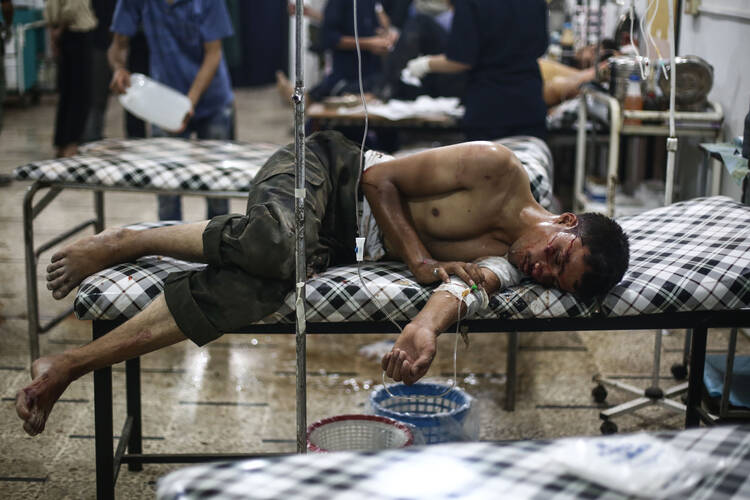“Serving and welcoming people fleeing violence and conflict in various regions of the world is part of our identity as Catholics,” Auxiliary Bishop Eusebio Elizondo of Seattle said at the bishops’ annual meeting in Baltimore on Nov. 15. With more than 65 million displaced people in the world today, the head of the bishops’ migration committee pledged that “our 80 dioceses across the country are eager to continue this wonderful act of accompaniment.”
In the wake of the election of Donald J. Trump, it is a message worth repeating. On the campaign trail, the president-elect put Syrian refugees on notice. “If I win, they are going back,” he said in September 2015. While Mr. Trump would not have the authority, even as president, to send back Syrian refugees who are already here, it is within his power to bring the number of refugees admitted down to zero.
This has refugee advocates worried. Chris George, executive director of Integrated Refugee and Immigrant Services in New Haven, Conn., told Deborah Amos of National Public Radio that popular support for a refugee ban is based on “a fundamental lack of information.” The State Department, he said, is partly to blame. It has insisted that resettlement programs like his keep a low profilein their communities. Now is the time to lift up the stories of asylum seekers, which more often than not are success stories of individual resiliency and communal solidarity. But it is also incumbent on those who have demonized and stoked fear of refugees to listen. Before Jan. 20, Mr. Trump should meet with Syrian refugees to hear about what drove them from their homeland and what they hope for their families. That should assuage his concern that “they could be ISIS,” and it could help to reassure the refugee population that they need not live in fear for the next four years.








